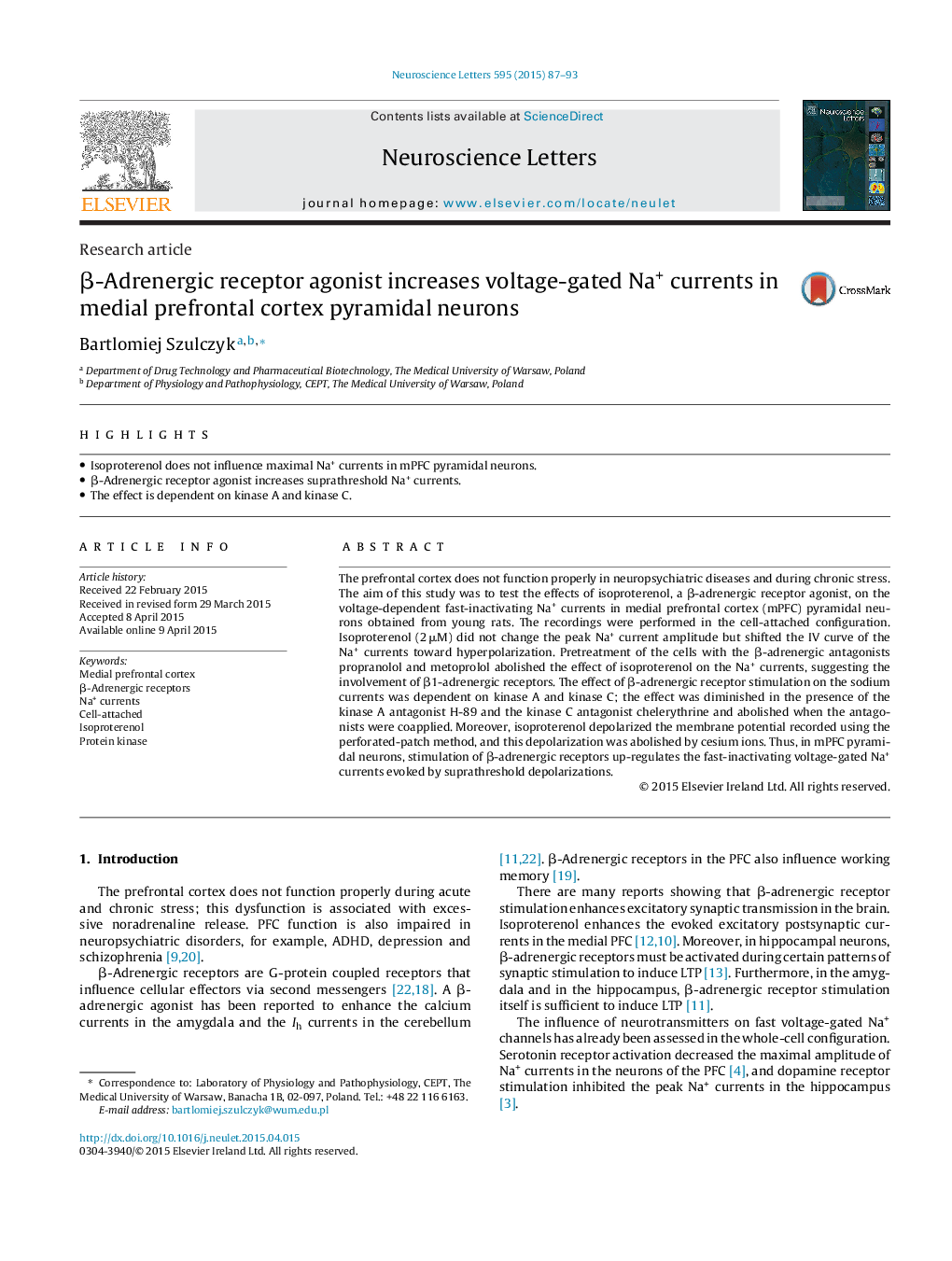| Article ID | Journal | Published Year | Pages | File Type |
|---|---|---|---|---|
| 6280962 | Neuroscience Letters | 2015 | 7 Pages |
Abstract
The prefrontal cortex does not function properly in neuropsychiatric diseases and during chronic stress. The aim of this study was to test the effects of isoproterenol, a β-adrenergic receptor agonist, on the voltage-dependent fast-inactivating Na+ currents in medial prefrontal cortex (mPFC) pyramidal neurons obtained from young rats. The recordings were performed in the cell-attached configuration. Isoproterenol (2 μM) did not change the peak Na+ current amplitude but shifted the IV curve of the Na+ currents toward hyperpolarization. Pretreatment of the cells with the β-adrenergic antagonists propranolol and metoprolol abolished the effect of isoproterenol on the Na+ currents, suggesting the involvement of β1-adrenergic receptors. The effect of β-adrenergic receptor stimulation on the sodium currents was dependent on kinase A and kinase C; the effect was diminished in the presence of the kinase A antagonist H-89 and the kinase C antagonist chelerythrine and abolished when the antagonists were coapplied. Moreover, isoproterenol depolarized the membrane potential recorded using the perforated-patch method, and this depolarization was abolished by cesium ions. Thus, in mPFC pyramidal neurons, stimulation of β-adrenergic receptors up-regulates the fast-inactivating voltage-gated Na+ currents evoked by suprathreshold depolarizations.
Related Topics
Life Sciences
Neuroscience
Neuroscience (General)
Authors
Bartlomiej Szulczyk,
